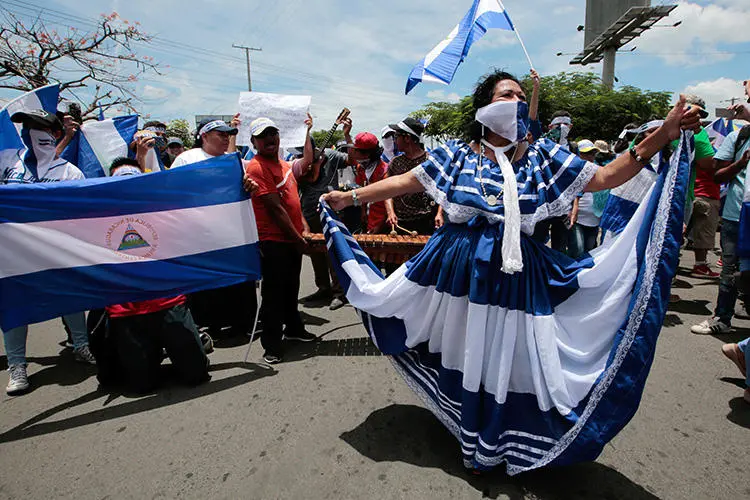Bogotá, Colombia, August 24, 2018–The Nicaraguan government has launched a campaign of harassment against the independent TV station Channel 10, which has criticized President Daniel Ortega for ordering deadly attacks on anti-government protesters over the past four months, according to news reports.
On Wednesday, the government’s Financial Analysis Unit said in a vaguely worded communiqué that it is investigating Channel 10 general manager Carlos Pastora for alleged money laundering. It provided no details.
Pastora, who has dual Nicaraguan-Honduran citizenship and also manages TV stations in Honduras and El Salvador, tried to leave the country this week but was turned back by immigration officials at the Managua airport. He then took refuge at the Honduran Embassy in Managua, according to news reports.
In addition, the news director of a rival, pro-government TV station controlled by the family of Ortega arrived at Channel 10 on August 20 and tried to commandeer its news operations. He falsely claimed that he was acting on Pastora’s instructions before he was expelled from the building, according to Channel 10 news director Mauricio Madrigal.
“The campaign against Channel 10 marks an escalation in Daniel Ortega’s ongoing attacks on independent media, by using government institutions to crack down on critical journalists,” CPJ Program Director Carlos Martinez de la Serna said from New York. “The government of Daniel Ortega must halt this campaign of intimidation and allow journalists to do their jobs of holding the administration to account.”
Madrigal told CPJ that the crackdown on the station is an effort by the Ortega government to damage the reputation of Pastora and pressure him into adopting a pro-government editorial position on Channel 10’s main news programs. “They want to take over our news operations. But we are going to continue with independent coverage,” Madrigal told CPJ in a telephone interview.
He added that Pastora remains holed up in the Honduran Embassy in Managua. In a letter to Honduras’s National Human Rights Commission that was published Thursday by the Nicaraguan media, Pastora asked for “immediate help,” saying that he feared for the safety of himself and his family. “We could be assassinated,” he wrote.
Calls by CPJ to the office of Vice President Rosario Murillo, who is Ortega’s wife and handles government press inquiries, were not answered.
Under Ortega, who returned to power in 2007 after leading the Marxist Sandinista government in the 1980s, most Nicaraguan news organizations supported the government or provided relatively benign coverage of Ortega’s increasingly authoritarian regime. But since anti-government protests broke out in April, Canal 10 has joined a small but growing number of Nicaraguan news outlets that have taken a more aggressive stance, according to CPJ research.
Channel 10, which is owned by Mexican media mogul Remigio Ángel González, is the only open-signal station in Nicaragua with news programs critical of the government, Madrigal told CPJ. It has provided constant coverage of the protests and of the government’s violent crackdown on the demonstrations which have killed more than 300 people, including one journalist, according to the Organization of American States.
